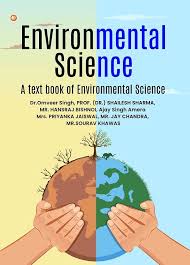| Course Status: | Upcoming |
| Course Type: | Core |
| Language for course content: | English |
| Duration: | 12 weeks |
| Category: |
|
| Credit Points: | 3 |
| Level: | Undergraduate |
| Start Date: | 21 Jul 2025 |
| End Date: | 10 Oct 2025 |
| Enrollment Ends: | 28 Jul 2025 |
| Exam Registration Ends: | 15 Aug 2025 |
| Exam Date: | 02 Nov 2025 IST |
| NCrF Level: | 4.5–8.0 |
It has been widely acknowledged that finding solutions to environmental problems that we are facing now has become a top priority. To this end, the proposed course aims to (i) (i) provide deep insights into contemporary global environmental issues from an interdisciplinary perspective within the framework of sustainable development; (ii) apply a global approach to emphasize how environmental problems are highly complex and interrelated, requiring understanding on a local, regional, national, and global level; and (iii) critically evaluate possible solutions to our present global environmental crises in a holistic manner.
INTENDED AUDIENCE: Undergraduate students pursuing a degree in science OR engineering, with an emphasis on the following disciplines:
• Environmental Engineering
• Civil Engineering
• Chemical Engineering
• Biotechnology
• Agricultural Engineering
• Mining Engineering
PREREQUISITES: Class XII
INDUSTRY SUPPORT: AECOM, Ramky Enviro Engineers Ltd., Environmental Resource Management, Veolia Water Technologies, SFC Environmental Technologies Pvt. Ltd., ARCADIS SENES, Nalco Water, Govt. Agencies like CPCB, SPCB, etc.
| Course Status: | Upcoming |
| Course Type: | Core |
| Language for course content: | English |
| Duration: | 12 weeks |
| Category: |
|
| Credit Points: | 3 |
| Level: | Undergraduate |
| Start Date: | 21 Jul 2025 |
| End Date: | 10 Oct 2025 |
| Enrollment Ends: | 28 Jul 2025 |
| Exam Registration Ends: | 15 Aug 2025 |
| Exam Date: | 02 Nov 2025 IST |
| NCrF Level: | 4.5–8.0 |
Note: This exam date is subject to change based on seat availability. You can check the final exam date on your hall ticket.
- Teacher: Admin User

